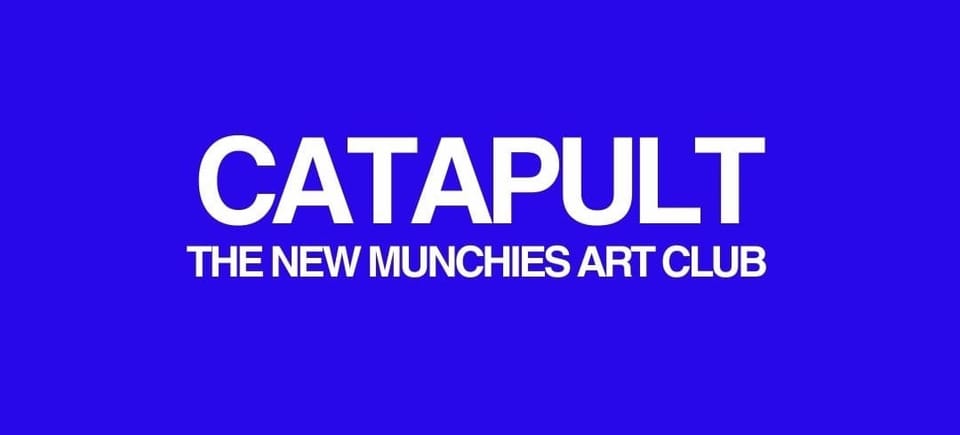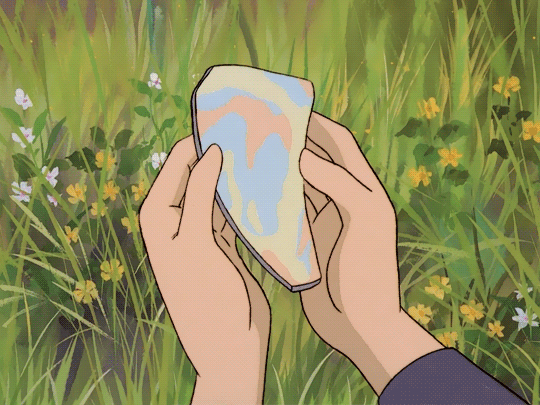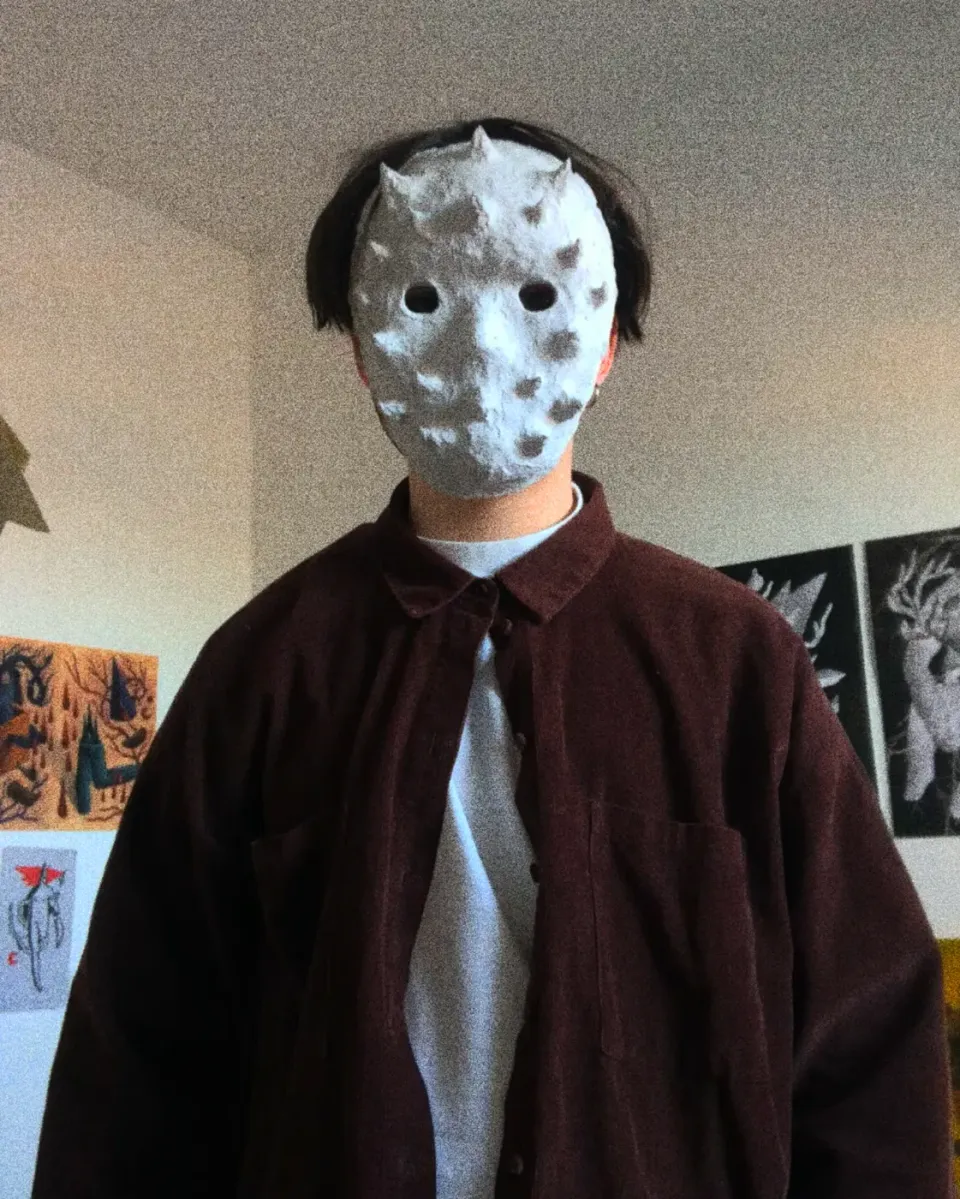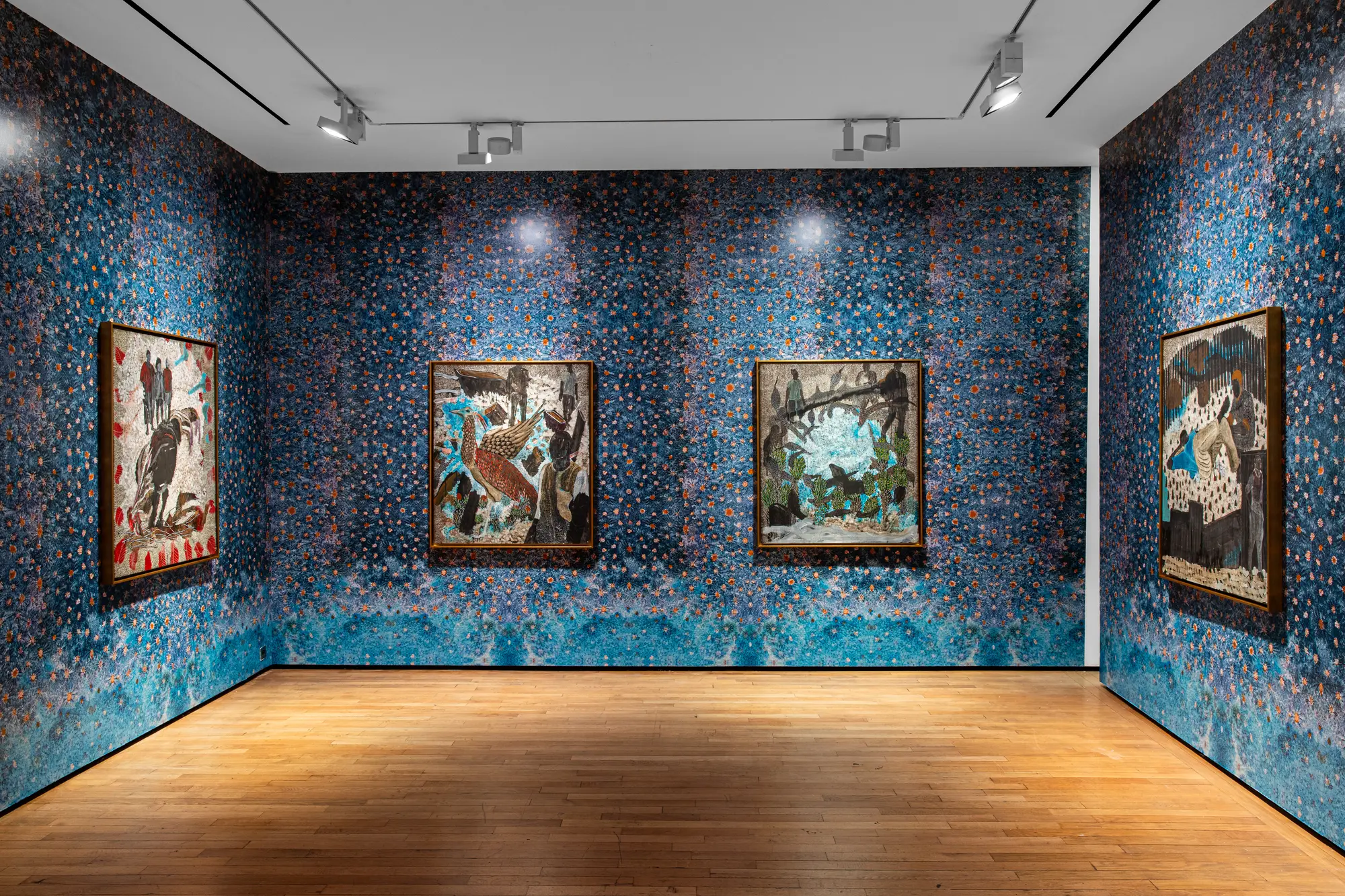Darja Shatalova At Bildraum 07 Curated By Michal Stolarik
Discover the new Exhibition at "Bildraum 07" Vienna with emerging Artist Darja Shatalova entitled "Zu Gast" curated by Michal Stolarik
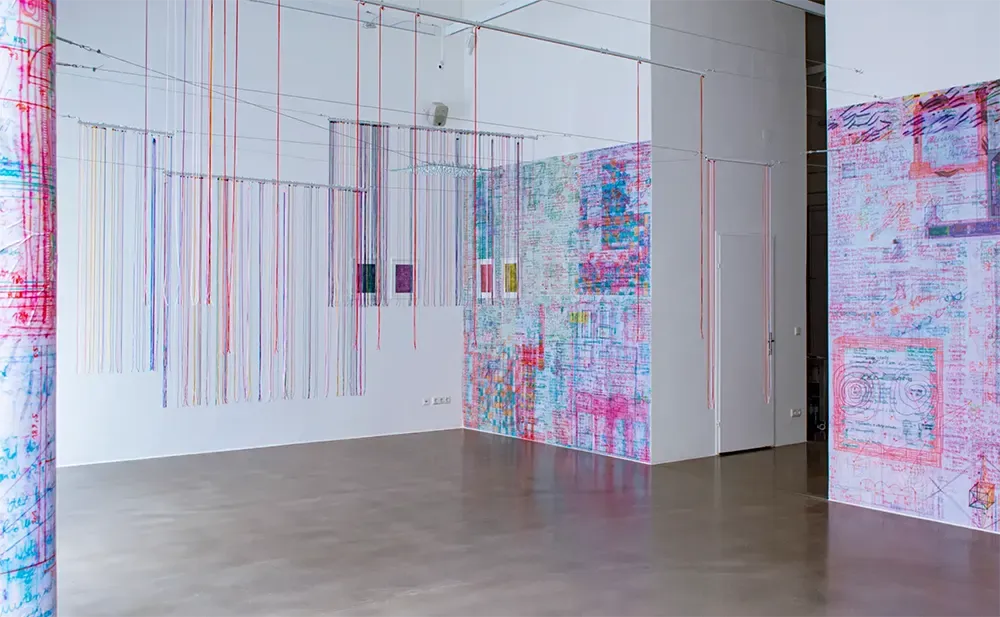
EXHIBITION AT BILDRAUM 07 VIENNA ENTITLED " ZU GAST" BY ARTIST DARJA SHATALOVA CURATED BY MICHAL STOLARIK
In the heart of Vienna, Bildraum 07 becomes a confluence of creativity and innovation as Darja Shatalova, a multidisciplinary artist known for her conceptual depth, joins forces with Michal Stolarik for the "Zu Gast" exhibition.
Their collaboration births a multilayered, installative masterpiece, pushing the boundaries of art and perception.
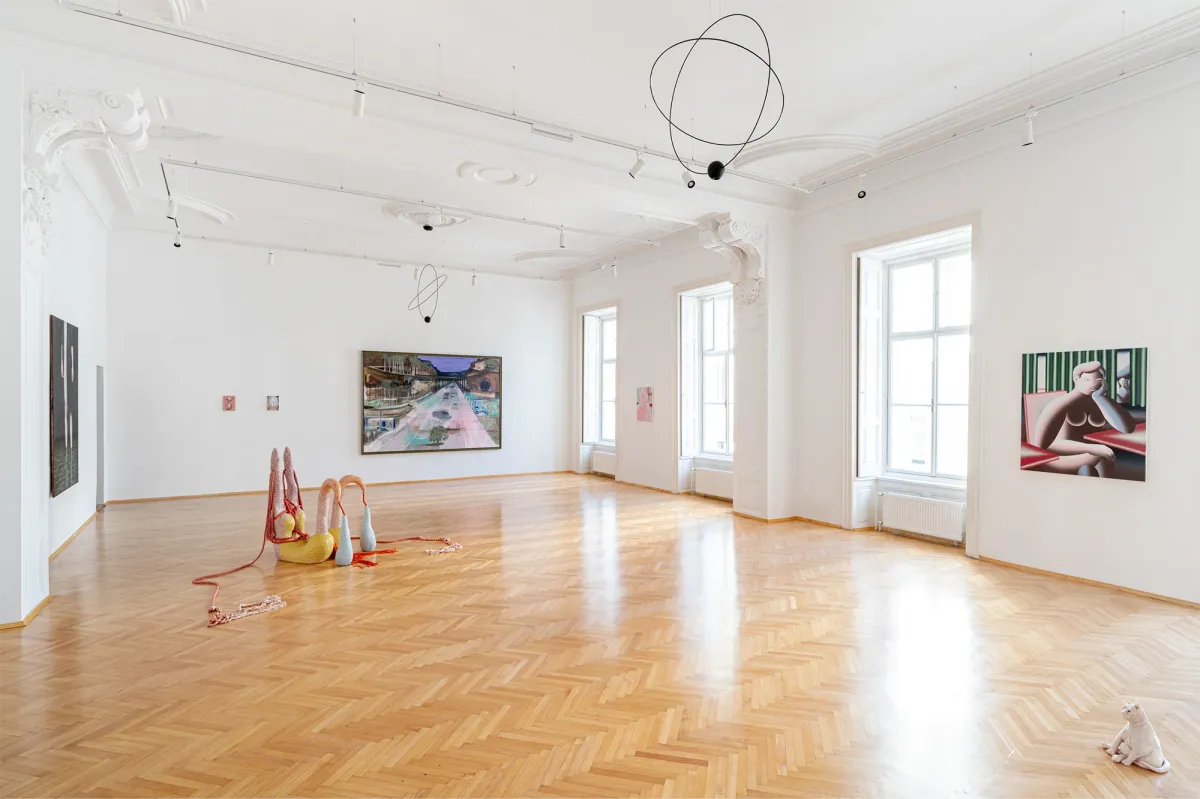
Read more about the Curator: Michal Stork
Munchies Art Club delves into Shatalova's universe, presenting an insightful overview that showcases the breadth and complexity of her work, inviting audiences to explore the layers of meaning and technique that define this unique artistic endeavor.
Darja Shatalova is a conceptual artist known for exploring the intersections of data, time, and space. Through her work, she translates complex patterns of existence into minimalist, yet profound visual and textual forms. Shatalova's art invites viewers into a meditative reflection on the universe's quantifiable and abstract aspects, challenging our perceptions of reality.
Her pieces, often grounded in mathematical precision, seek to uncover the underlying rhythms that govern both the cosmos and human consciousness. This journey through numbers and beyond aims to bridge the gap between the seen and unseen, offering a unique lens through which to view the fabric of our existence.
The ability to decipher the seen emerges gradually, with the pathway to knowledge paved with hurdles of visual codes. But the fragments of numbers, specific names, and dates stimulate our curiosity, gently prompting us towards voyeurism.

Connections are disclosed through accumulated lines of thread. We observe the filigree materials used hand in hand with gradual dissolution of the borderline between private and public.
Bildraum 07, nestled in Vienna's vibrant 1070 district, is a gallery that showcases cutting-edge contemporary art, from painting to installations.
Part of the Bildraum series, it's a hub for innovative artistic expression and dialogue.
Darja Shatalova's Zu Gast exhibition project, minimalistic in expressions but rich in content, embodies information collected by the artist throughout the past five years.

Inspired by a visitors’ book from Dieter Roth Foundation in Hamburg, Shatalova has started to record all personal encounters at different locations: her flat, artistic residencies, and vacations abroad.
Her personalized version of a visitors’ book has become a sort of a diary reflecting all her social interactions, whether with close friends, family members, co-workers, or people she only met once.
What began as an innocent experiment transformed with the onset of pandemics into a particular control mechanism, becoming a memento of prior unlimited free movement and getting together.

Shatalova’s analogue approach to collecting information – through hand-made notes on loose sheets of paper and in notebooks – helps her to create her own systems and categories or discover new connections.
Although she later digitalizes them to achieve greater flexibility, it is the imprint and her original artistic gesture, along with colourful variations and abstract-looking graphical symbols and codes, that are attractive by their organic form, while contrasting with the coldness of digital output.

She covers, collages, and deconstructs scanned personal notes, eventually transferring them to gallery walls as monumental prints.
Naturally, they lose their functionality and comprehensibility, transformed into expressive, abstract background drawings for a central, imaginative spatial map connecting people with places.
Although we cannot know the identity of persons and whereabouts of the locations, Shatalova assigns a vicarious colour to each individual that corresponds with a specific coloured cord, running imaginarily from the core of the installation into levitating aluminium profiles representing times and places of meetings.

She leaves these dynamic spatial compositions to open explorations and interpretations by viewers. Shatalova forms borderline positions – be it through a contrasting character of materials used, an ambiguous interface between the personal and private, or a fluid line between conscious control and formal automatism – exploring relatively banal though rather intimate information made available to us.

